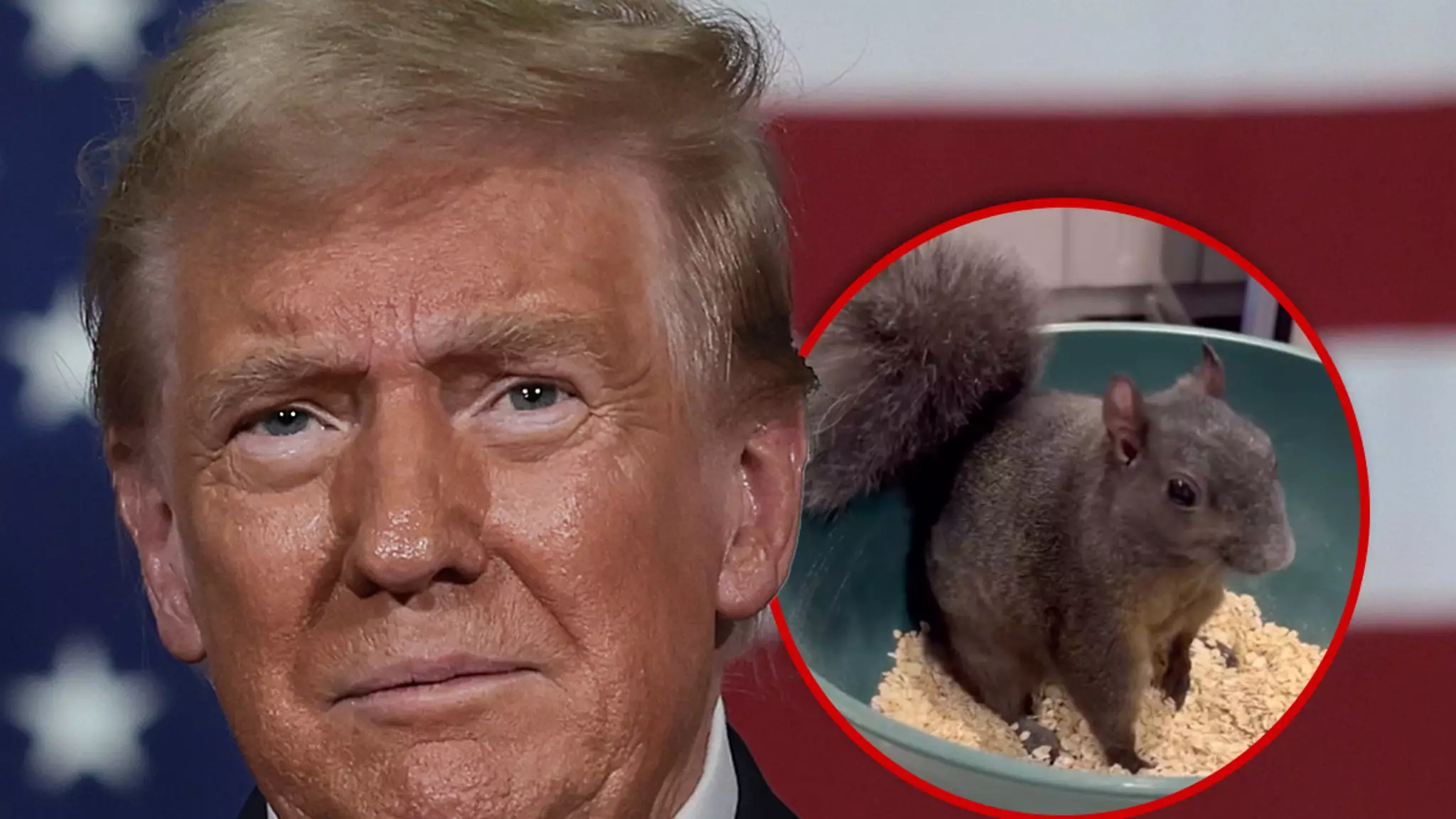In the fast-paced world of social media, tales can morph into wild stories within moments. Recently, a seemingly outlandish claim swept across platforms like wildfire, suggesting that former President Donald Trump had made a heartfelt plea for justice regarding a pet squirrel named Peanut. The sensational assertion took the internet by storm on a Saturday morning, but as it turned out, the source was entirely fictional. This incident illustrates the unpredictability of social media and the mind-boggling chaos it can create out of thin air.
According to the reports, a fabricated press release went viral, claiming Trump condemned the confiscation and euthanization of Peanut. Spokesperson Steven Cheung later clarified that the statements attributed to Trump were false, dismissing the commotion as a hoax. The fictitious press release painted a picture of Trump calling the whole affair a “waste of resources” while expressing sympathy for Peanut, whom he humorously suggested would have been treated differently had he claimed origins from Mexico. This absurd narrative, despite its fabrication, garnered significant attention and amplified discussions around the unusual intersection of politics and animal rights.
The controversy ignited after New York state authorities reportedly took action against Peanut’s owners due to anonymous complaints about the legality of having a pet squirrel. The situation escalated quickly, with the owners, Mark and Daniela Longo, voicing their outrage over what they categorized as an abuse of government power. They argued that the seizure of Peanut not only harmed their family but also represented a misuse of taxpayer dollars. In a society increasingly polarized by issues like pet ownership rights and government intervention, the Longos’ plight resonated with many who advocate for animal rights.
The Ripple Effect on Social Media
The story didn’t just remain confined to traditional media; it exploded online, leading to a wave of AI-generated imagery featuring both Trump and Peanut. This phenomenon draws parallels to past social media trends where public figures get engulfed in fictional narratives or satirical commentary. The ongoing public fascination with the plight of Peanut reflects a broader trend of internet users becoming emotionally invested in whimsical or even tragic stories that often connect celebrities with everyday creatures.
While the uproar surrounding Peanut’s fate generated significant online engagement, it also sheds light on a more profound discussion: the complex legalities surrounding exotic pet ownership and animal rights. In many states, laws prohibit the ownership of certain species, leading to tragic outcomes when individuals view regulations as unjust. The outcry from the Longos emphasizes the emotional and societal implications when these regulations are enforced without nuance or consideration for the animal’s well-being or the family’s dynamics.
The whirlwind surrounding Peanut the squirrel exemplifies the bizarre yet fascinating convergence of politics, social media, and animal rights activism. Whether driven by humor, outrage, or genuine concern, reactions to this story highlight the powerful influence of collective digital engagement in shaping public discourse. While the impulse to jump on viral trends may be a hallmark of our modern society, incidents like this reveal the serious undertones of compassion, legality, and the ever-blurring lines between truth and fiction in the age of the internet. As the narrative unfolds, one can only wonder what the next sensational story will be, perhaps featuring another political figure and an unexpected animal ally.

